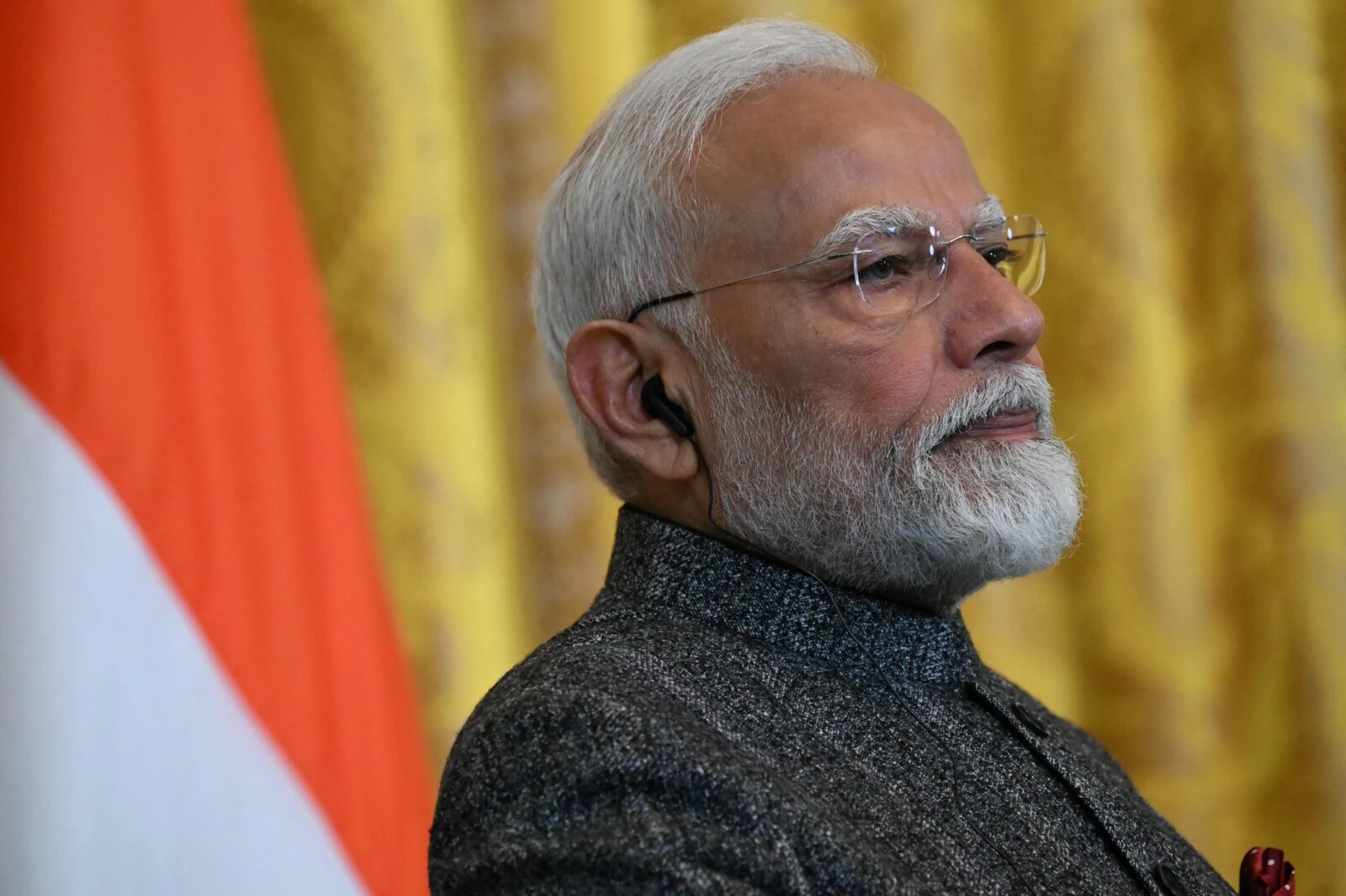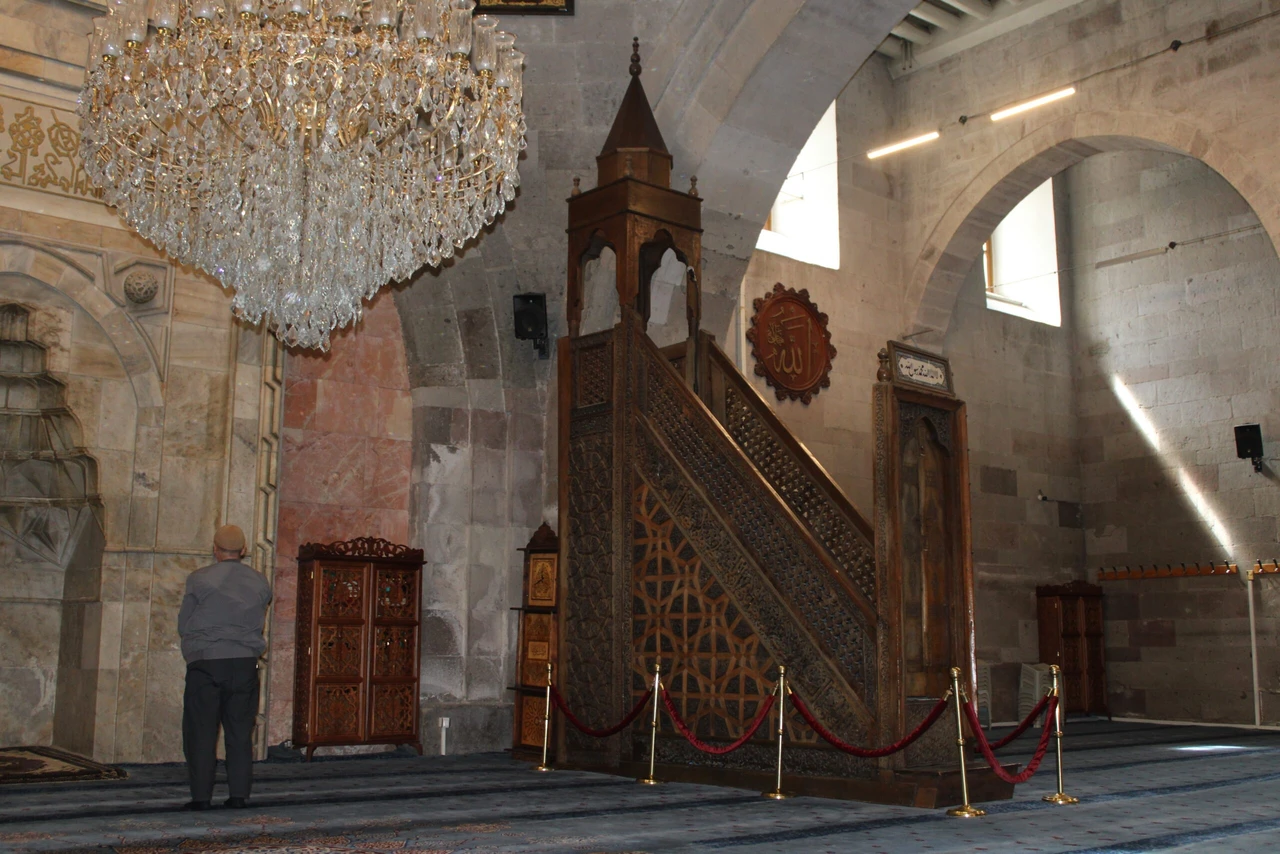Here’s why Muslims in India should fear Modi and his controversial new law
 Indian Prime Minister Narendra Modi speaks to the media after he arrived at the Parliament on the first day of its budget session, in New Delhi India on January 31, 2025. (AA Photo)
Indian Prime Minister Narendra Modi speaks to the media after he arrived at the Parliament on the first day of its budget session, in New Delhi India on January 31, 2025. (AA Photo)
India’s parliament has passed a controversial bill aimed at overhauling laws governing Islamic charitable endowments, known as waqf, despite sharp criticism from Muslims in India and opposition parties.
The bill, introduced by Prime Minister Narendra Modi’s government, seeks to limit the authority of waqf boards, enhance government oversight, and allow non-Muslims to sit on these boards.
Waqf properties, donated by Muslims in India for religious or charitable purposes, include mosques, graveyards, seminaries, orphanages, schools, markets, and extensive parcels of land across India.
Once declared as waqf, these properties cannot be sold or transferred.
The contentious bill was first presented in August last year, and after months of review and recommendations for changes, reached the lower house on Wednesday, where it passed following a 12-hour heated debate.
On Friday, the upper house also approved the bill by 128 to 95 votes, paving the way for it to be sent to President Droupadi Murmu for approval before becoming law.
The government has defended the changes, arguing they would bring efficiency, transparency, and accountability to the management of waqf properties.
Yet, many within the Muslim community vehemently disagree, perceiving the bill as a gateway for arbitrary seizures and interference in religious affairs.
The All India Muslim Personal Law Board strongly condemned the legislation, labeling it discriminatory, unjust, and unconstitutional. The board’s chairman, Khalid Saifullah Rahman, has accused Modi’s Bharatiya Janata Party (BJP) of trying to “weaken waqf laws and pave the way for the seizure and destruction of waqf properties.”

History of waqf management in India
The practice of waqf dates back to the 12th-century Delhi Sultanate when Muslim rulers from Central Asia introduced it to India.
Today, waqfs in India hold approximately 870,000 properties over nearly 1 million acres (405,000 hectares), valued at over $14 billion.
Under British colonial rule, formal legal frameworks to manage waqf properties emerged in 1913. Post-independence, India introduced the Central Waqf Act of 1954, replaced later by the Waqf Act of 1995, which sought better property management.
Significant reforms were again implemented in 2013, including jail terms for encroachment, a ban on transferring waqf properties, and allowing non-Muslims to donate property to waqf.
What are the new changes and how they affect Muslims in India?
The latest amendment effectively undoes several of these provisions, while also substantially expanding government bureaucrats’ authority over waqf boards, particularly in mediating disputes.
Under previous rules, waqf boards independently registered properties. Now, bureaucrats will first verify ownership claims. Properties identified as disputed or government-owned will remain unregistered until the issue is resolved by courts.
Critics see this as a direct breach of justice principles, noting it allows the government to become judge in cases where it is a party.
“No one can be a judge in his own cause … These amendments have given power to the government to choose its own adjudicator in those disputes where the government itself is a party,” Wajeeh Shafiq, former legal counsel for the Delhi Waqf Board, told Anadolu.
In response, the government argues these measures are necessary to curb misuse and corruption within waqf boards.
The new bill also partially abolishes “waqf by user” – a longstanding Islamic legal concept whereby properties continuously used for religious purposes are deemed waqf even without documentation.
Existing properties registered as waqf by user will retain their status unless challenged, but no new properties can be declared under this category without formal documentation.
Additionally, the bill reduces the powers of tribunals set up to resolve disputes. Decisions from these tribunals, which comprise senior judicial officers, senior bureaucrats, and Muslim law experts, will no longer be final, with provisions allowing appeals to be filed in high courts within 90 days.
Further, the new rules restrict waqf boards from reclaiming properties occupied by encroachers for more than 12 years, potentially enabling illegal occupants to claim ownership through adverse possession.
Moreover, the amendments allow non-Muslims onto state and central waqf boards and remove the requirement that board chief executives be Muslim. The powers of boards to decide whether a property is waqf have also been revoked.

Criticism and defense
These provisions have sparked particular outrage as critics argue that the constitution gives all religions the right to manage their affairs. They have pointed to similar laws for Hindu endowments, where only Hindus can be the heads.
“This bill is unconstitutional as it violates Article 26, which guarantees freedom to manage our religious affairs and institutions,” Aleem Ilahi, a political activist from Karnataka organizing demonstrations against the bill, told Anadolu.
“This sham, cloaked as reform to curb corruption, interferes with religious affairs of Muslims in India, and threatens ownership and management of our mosques, shrines, and seminaries.”
Shafiq, the former waqf counsel, said the amendments fail to address core issues like corruption effectively, and “seem more like a political gesture than a thoughtful policy shift.”
He noted that previous provisions calling for imprisonment for illegal property transfers have been diluted.
“The new law is, in effect, rewarding encroachers and corrupt individuals,” he remarked.
He also rejected claims that waqf boards misuse their power in declaring properties, arguing that court oversight already prevents arbitrary property declarations.
Supporters of the move, like BJP’s Shadab Shams, chairman of Uttarakhand’s Waqf Board, argue the measures will curb corruption and encroachments.
“There has been loot and corruption, with waqf properties being encroached upon and seized by wealthy and influential Muslims, even though these properties are meant for the poor,” Shams told Anadolu.
“The new law will ensure poor Muslims get their rightful share.”
He also dismissed fears of Muslim properties being seized, asserting that “no mosque or madrassa will be taken away.”
“The Modi government is committed to uplifting the community and safeguarding these assets for those who truly need them,” he added.



